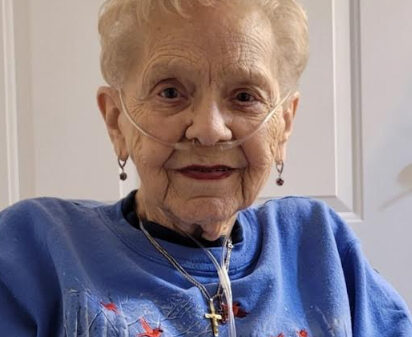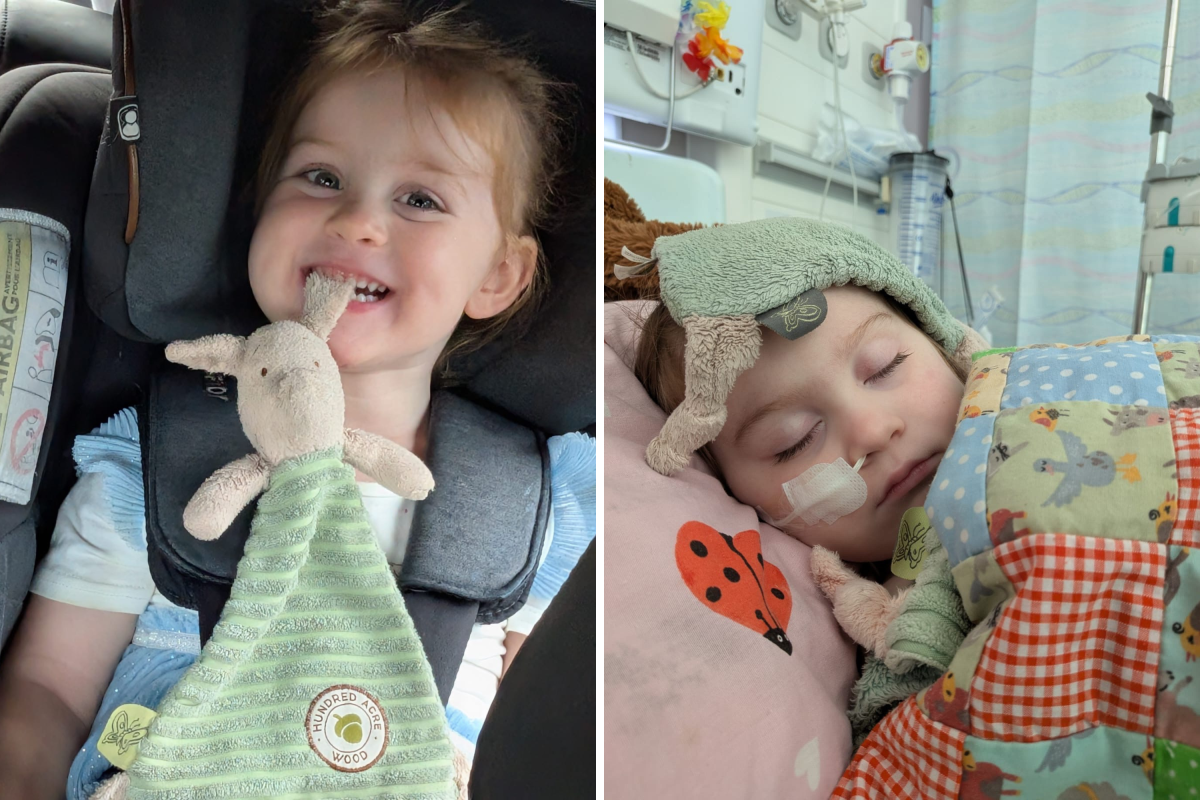When George Gibson, 30, and his wife Laura, 31, took their two-year-old daughter Harper for a routine eye test, they were unprepared for the life-altering news that would follow. The family from Staffordshire, England, initially thought the appointment would lead to a simple prescription for glasses, as Harper had recently developed a lazy eye. However, an eye scan revealed a serious issue that sent them straight to the emergency room.
The optician’s immediate concern was alarming. “Her optic nerve was extremely swollen,” George recalled. “They stopped the eye test and sent us straight to the hospital.” This marked the beginning of a harrowing journey that would lead to a shocking diagnosis.
Dismissed Symptoms and a Critical Diagnosis
For weeks leading up to the eye test, Harper exhibited unusual fatigue. Initially, doctors attributed her symptoms to an ear infection and later to tonsillitis. After six visits to medical professionals, each time the couple was reassured that rest would suffice. “They kept saying rest, but she couldn’t possibly sleep any more,” Laura explained.
Harper’s condition deteriorated, leading to confusion and lethargy, alongside a noticeable head tilt. “We thought it might just be a lazy eye and that she’d get glasses,” Laura said. “We never considered it could be cancer.”
Two days after the eye test on August 14, 2023, Harper underwent a nine-hour surgery to remove a tumor from her brain. Surgeons successfully extracted 99 to 100 percent of the mass, which was subsequently sent for biopsy analysis. Eight days later, the family received devastating news: Harper had been diagnosed with medulloblastoma, an aggressive form of brain cancer affecting the cerebellum. This type of tumor is the most common cancerous brain tumor in children, accounting for nearly 20 percent of pediatric brain tumors in the United States. In the UK, around 50 children are diagnosed with this disease each year.
A Daunting Treatment Journey
The diagnosis left George and Laura grappling with overwhelming emotions. “At that point, your life stops for a moment,” George said. “We were left speechless but relieved it was caught at the best time possible.”
On August 30, Harper began her first of six planned rounds of chemotherapy. Despite the challenges of treatment, including mouth ulcers and hair loss, her parents praised her resilience. “She’s oblivious to the fact that she’s ill—and it’s lovely to see,” Laura shared.
The first round of chemotherapy showcased Harper’s spirited nature as she remained upbeat and humorous. However, the second round posed new challenges. “The aftermath was completely different,” George noted, explaining that Harper experienced a suppressed appetite and troubling episodes of consciousness.
As the family braces for the third cycle of chemotherapy, they express confidence in the care provided by the medical team at Birmingham Children’s Hospital. “The oncology team has been brilliantly reassuring. We’ve never felt uncertain or unaware of what we’re going through,” they stated.
Through their ordeal, George and Laura have opted to document Harper’s journey on Instagram, hoping to inspire other families facing similar challenges. “If you don’t talk about it, you can drive yourself crazy,” George said. “It’s so much better to try to put some positivity into it.”
Laura emphasized Harper’s potential impact on the world: “I always tell people she’s going to change the world with every positive step she takes.”
This family’s story highlights not only the unforeseen challenges of childhood illness but also the strength and hope that can emerge from adversity.






































































